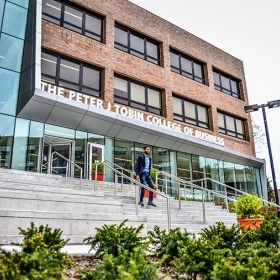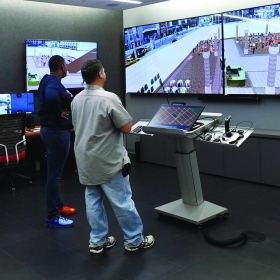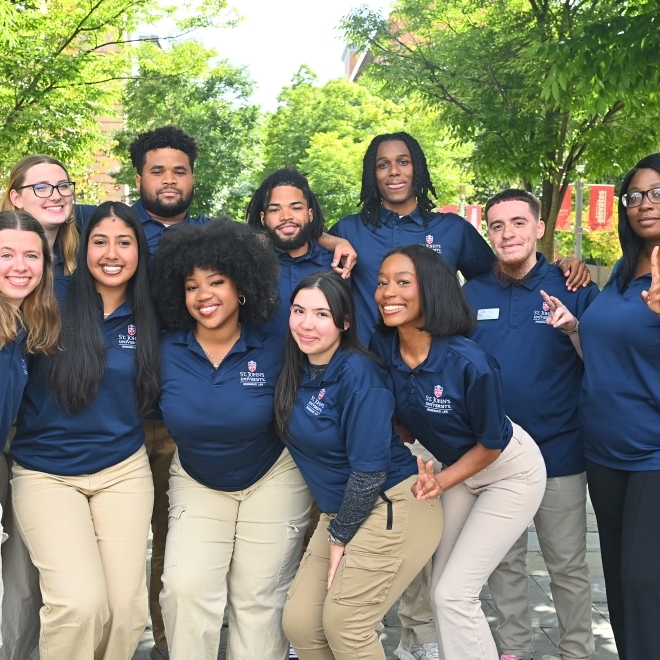The Johnnies Blog

In-Demand Careers for M.B.A. Graduates
Graduates from M.B.A. programs—like the top-ranked M.B.A. program at The Peter J. Tobin College of Business at St. John’s University—are well positioned to take on challenging new roles, lead companies, and accelerate their careers.

How Long Does it Take to Get an M.B.A.?
One of the key questions you may ask as you explore graduate programs is how long does it take to get an M.B.A.? The answer to this question is: it depends! There are several factors such as the type of program, your academic background, and whether you choose to study full time or part time. You can complete an M.B.A. in as little as 1.5 years or go at your own pace through six semesters.

Thinking about an M.B.A.? Here’s Your Step-By-Step Guide to Success
Investing in yourself with an M.B.A. is a decision you won’t regret. To have the best possible experience as a graduate business student, here are a few key tips for each stage from application to career advancement.

Marketing Intelligence vs. Marketing Analytics vs. Business Analytics: Choosing the Right Master’s Degree
As the Director of St. John’s University’s Master of Science (M.S.) in Marketing Intelligence degree program at The Peter J. Tobin College of Business, I often receive questions about the unique aspects and advantages of a master’s degree in marketing intelligence compared to degrees in marketing analytics or business analytics. In this blog post, I provide an overview of each of these programs offered at the University, highlighting the skills you develop and the career opportunities available with each degree.

Navigating Real-World Challenges: Inside St. John’s Homeland Security Simulation Lab
Explore the intersection of theory and practice in homeland security at St. John’s University. Learn how our simulation lab provides hands-on experience, research opportunities, and industry connections to prepare you for a career in the field.

AI Evolution: What is a Large Language Model?
Many people use Artificial Intelligence (AI) chatbots like ChatGPT and Gemini. They give you the answers you want without doing an extensive deep dive through a Google search. But have you ever wondered what a large language model is and how it can generate such excellent responses?

Homeland Security & Criminal Justice Leadership: Master Dual Program
In today’s dynamic landscape, a career in homeland security and criminal justice leadership is a responsibility—a dedication to safeguarding communities and upholding equity. A cornerstone of meeting this responsibility lies in an understanding of both homeland security and criminal justice leadership, the discipline in which encompasses unique insights and challenges that demand specialized knowledge and skills. Homeland security demands a keen understanding of cybersecurity, counterterrorism, and emergency preparedness, while criminal justice leadership focuses on enforcing laws and ensuring equitable justice for all.

Cybersecurity in Global Context: Hands-On Learning Experience in St. John's Rome
This is my reflection on the Cybersecurity in a Global Context program at St. John’s University and its impact on my personal and academic growth.

Careers in Homeland Security and Criminal Justice Leadership
"Duty, honor, country. Those three hallowed words reverently dictate what you ought to be, what you can be, what you will be." - Gen. Douglas MacArthur

